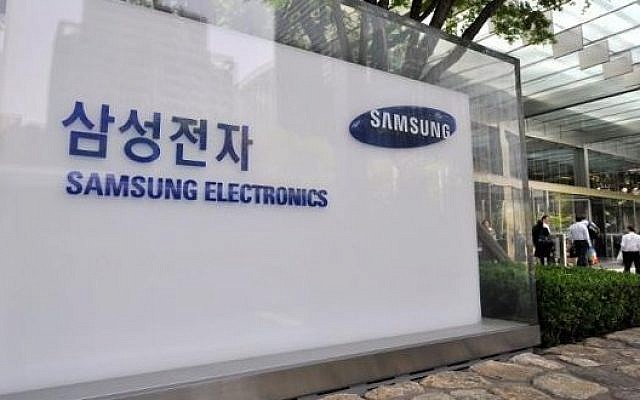Organization
Samsung | Success Story of one of the top companies in the world
Published
2 years agoon

Samsung is a South Korean multinational conglomerate company headquartered in Samsung Town, Seoul. It comprises numerous affiliated businesses, most of them united under the Samsung brand, and is the largest South Korean chaebol (business conglomerate).
Samsung was founded by Lee Byung-Chul in 1938 as a trading company. Over the next three decades, the group diversified into areas including food processing, textiles, insurance, securities, and retail. Samsung entered the electronics industry in the late 1960s and the construction and shipbuilding industries in the mid-1970s; these areas would drive its subsequent growth.
As of 2021, Samsung has the 6th highest global brand value.
How Samsung Started
Samsung was founded by Lee Byung-Chul in 1938 as a trading company in South Korea. At the time, Korea was under Japanese rule, and Lee saw an opportunity to start a business that could help the country become more self-sufficient. He started by exporting goods produced in the region, such as fish, vegetables, and fruit to other countries.
In the late 1950s, the company entered into the sugar refining business, and in the 1960s, it diversified into the textiles and insurance industries. In the 1970s, Samsung began to expand into new areas, including shipbuilding, construction, and the petrochemical industry.
It was in the late 1960s that Samsung entered the electronics industry. The company released its first black-and-white television in 1969, and by the 1970s, it had become a major player in the Korean electronics market. In the 1980s, Samsung expanded its electronics business even further, developing a wide range of products including home appliances, computers, and mobile phones. Today, Samsung is a global leader in the technology industry, with a presence in a wide range of markets including consumer electronics, telecommunications, and home appliances.
After Lee Byung-Chul Death
After the death of its founder, Lee Byung-Chul, in 1987, Samsung was separated into four business groups:
- Samsung Group
- Shinsegae Group
- CJ Grou
- Hansol Group.
Each group was given a specific area of focus and set of businesses to manage.
Samsung Group, the largest of the four groups, was responsible for the majority of Samsung’s businesses, including the electronics, engineering, and financial services sectors. Shinsegae Group was focused on the retail and department store industries, while CJ Group focused on food, entertainment, and chemical products. Hansol Group was responsible for the telecommunications and media businesses.
Since the separation of the company into these four business groups, Samsung has continued to grow and expand into new markets. It has become a global leader in the technology industry, with a presence in a wide range of markets including consumer electronics, telecommunications, and home appliances.
Samsung Top Acquisitions
Samsung Group has made a number of acquisitions over the years to expand its businesses and enter new markets.
| Acquisitions | Description |
| Harman International | In 2017, Samsung acquired Harman International, a leading manufacturer of audio and infotainment systems for the automotive, consumer, and professional markets. The acquisition was seen as a way for Samsung to expand its presence in the connected car market. |
| LoopPay | In 2015, Samsung acquired LoopPay, a startup that developed technology for mobile payments. The acquisition was seen as a way for Samsung to compete with Apple Pay and other mobile payment systems. |
| SmartThings | In 2014, Samsung acquired SmartThings, a startup that developed a platform for controlling and automating smart home devices. The acquisition was seen as a way for Samsung to enter the growing smart home market. |
| Joyent | In 2016, Samsung acquired Joyent, a cloud computing company that provided infrastructure-as-a-service (IaaS) and platform-as-a-service (PaaS) offerings. The acquisition was seen as a way for Samsung to expand its cloud computing capabilities. |
| Dacor | In 2016, Samsung acquired Dacor, a luxury appliance company that produced high-end kitchen appliances. The acquisition was seen as a way for Samsung to expand its presence in the premium appliance market. |
Samsung’s contribution in Burj Khalifa
Samsung C&T Corporation, a subsidiary of Samsung Group, was the main contractor for the construction of the Burj Khalifa, the tallest building in the world. Samsung C&T was responsible for the construction of the building’s foundations and superstructure, as well as the installation of the building’s elevators and air conditioning systems.
The Burj Khalifa project was a major undertaking, and Samsung C&T faced numerous challenges during the construction process. The company had to develop new technologies and techniques to deal with the extreme heat and high winds in the area, as well as the logistical challenges of building such a tall structure. Despite these challenges, Samsung C&T was able to complete the project on schedule and to the highest standards of quality.
The Burj Khalifa is a testament to Samsung’s engineering and construction capabilities, and the company’s work on the project has helped to solidify its reputation as a leading global contractor.
Samsung contribution to south Korea’s GDP
Samsung is one of the largest and most successful companies in South Korea, and it has played a significant role in the country’s economic development. According to data from the Korean International Trade Association, Samsung’s exports accounted for about 20% of South Korea’s total exports in 2020. In the same year, Samsung’s revenue made up about 17% of South Korea’s gross domestic product (GDP).
Samsung’s success has also had a positive impact on the South Korean economy in other ways. The company is a major employer in the country, with a workforce of over 300,000 people in South Korea alone. Additionally, Samsung’s research and development (R&D) efforts have helped to drive technological innovation in the country and have contributed to the growth of South Korea’s high-tech industries.
Interesting Facts About Samsung
- Founded in 1938 as a small trading company in South Korea. It has since grown into a global conglomerate with a presence in a wide range of industries, including electronics, telecommunications, finance, and more.
- world’s largest manufacturer of smartphones and TVs, and it is also a major player in the semiconductor and home appliance markets.
- Has a strong focus on research and development, and it is one of the top investors in R&D in the world. In 2020, the company spent over $15 billion on R&D efforts.
- Has a strong commitment to sustainability, and it has set ambitious goals for reducing its environmental impact. The company aims to become carbon neutral by 2050.
- Has a diverse workforce, with employees from over 80 different countries.
- Has a long history of philanthropy, and it supports a wide range of charitable causes through its corporate social responsibility program.
Samsung Affiliates
| Affiliates | Description |
| Samsung Electronics | This is the largest and most well-known affiliate of Samsung Group. It is a global leader in the technology industry, with a presence in a wide range of markets including consumer electronics, telecommunications, and home appliances. |
| Samsung C&T Corporation | This affiliate is involved in the engineering, construction, and trading businesses. It has completed major projects around the world, including the Burj Khalifa in Dubai, the tallest building in the world. |
| Samsung Life Insurance | This affiliate is one of the largest life insurance companies in South Korea. It offers a wide range of insurance products and services to individuals and businesses. |
| Samsung Heavy Industries | This affiliate is involved in the shipbuilding and offshore plant businesses. It has a strong presence in the global market and has completed numerous projects around the world. |
| Samsung SDI | This affiliate is a leading manufacturer of batteries and energy storage systems. It is also involved in the development and production of displays, materials, and other related products. |
| Samsung Fire & Marine Insurance | This affiliate is one of the leading non-life insurance companies in South Korea. It offers a wide range of insurance products including property, casualty, and marine insurance. |
| Samsung Engineering | This affiliate is involved in the engineering and construction of plants and other facilities in the oil, gas, and chemical industries. |
| Samsung SDS | This affiliate is a leading provider of information technology (IT) services, including consulting, system integration, and outsourcing. |
| Samsung Securities | This affiliate is a financial services company that offers a wide range of products and services including securities trading, investment banking, and asset management. |
| Samsung Medical Center | This affiliate is a leading hospital and research center in South Korea. It offers a wide range of medical services and is known for its expertise in cancer treatment and other specialized areas. |
Present
Today, Samsung is one of the top companies in the world. The company has a powerful influence on South Korea’s politics, media, economic development, and more. Their success story is very inspiring. In 2012, Samsung Electronics became the top cellphone manufacturer. Every second person in the world has a Samsung device in their hand. In addition, its construction company constructed the Burj Khalifa. Samsung also employs more than 370,000 employees all around the world. 17% of Samsung’s Gross Domestic Product is owned by Samsung.


From a grocery store to becoming one of the top companies in the world, the company’s success story of truly inspiring. In 2018, the company made a profit of $41 billion. However, the company also faced several setbacks and challenges. They were the center of several corporate scandals including patent-infringement suits and bribery cases. But, they pushed through all the hurdles and overtook the electronics industry. Samsung’s subsidiaries include Heavy Industries, Samsung Engineering, C&T Cooperation, Life Insurance, and many more.
Also read: Robert Pattinson | The success story of the ‘The Batman’ star
Samsung Biggest Projects
| Projects | Description |
| Burj Khalifa | Samsung C&T Corporation, a subsidiary of Samsung Group, was the main contractor for the construction of the Burj Khalifa in Dubai, the tallest building in the world. Samsung C&T was responsible for the construction of the building’s foundations and superstructure, as well as the installation of the building’s elevators and air conditioning systems. |
| Incheon Bridge | Samsung C&T Corporation was also the main contractor for the construction of the Incheon Bridge in South Korea, one of the longest bridges in the world. The company was responsible for the construction of the bridge’s main span, as well as the approach spans and other related structures. |
| Olkiluoto Nuclear Power Plant | Samsung Engineering was the main contractor for the construction of the Olkiluoto Nuclear Power Plant in Finland, one of the largest nuclear power plants in the world. The company was responsible for the design, procurement, and construction of the plant’s two nuclear reactors. |
| Gorgon LNG Project | Samsung Heavy Industries was the main contractor for the construction of the Gorgon Liquefied Natural Gas (LNG) Project in Western Australia, one of the largest LNG projects in the world. The company was responsible for the construction of the project’s LNG processing facilities, as well as the offshore platform and other related structures. |
Controversies
| Working conditions at Samsung factories | Samsung has faced criticism over the working conditions at its factories in South Korea and other countries. There have been allegations of long working hours, low pay, and poor safety standards at Samsung factories. |
| Patent disputes | Samsung has been involved in numerous patent disputes with other companies, including Apple, over the years. These disputes have often been acrimonious and have resulted in legal battles in various countries. |
| Bribery and corruption | In 2017, Samsung Group’s vice chairman, Lee Jae-yong, was convicted of bribing South Korean officials in connection with a scandal that led to the impeachment of the country’s president. The scandal resulted in significant public outrage and damaged Samsung’s reputation. |
| Privacy concerns | Samsung has faced criticism over the way it handles customer data, and there have been concerns about the privacy implications of some of the company’s products and services. |
| Environmental impact | Samsung has also faced criticism over the environmental impact of its operations, including the use of hazardous chemicals in the production of its products. The company has made efforts to address these concerns and has set ambitious sustainability goals. |
Frequently Asked Questions
Samsung is a diverse company that makes a wide range of products, including smartphones, TVs, home appliances, computers, and more. The company is also involved in industries such as semiconductors, construction, and finance.
Samsung is headquartered in Samsung Town, Seoul, South Korea. The company has a global presence, with offices and operations in countries around the world.
The current CEO of Samsung is Kim Hyun-suk. He has held this position since 2021.
Yes, Samsung is a publicly-traded company. Its shares are listed on the Korea Exchange and the New York Stock Exchange.
Samsung is a large and successful company, and it generates significant revenue each year. In 2020, the company’s revenue was over $220 billion.
You may like


50Fin | Revolutionizing Financial Services with Instant Loans


Amit Gupta: The Visionary Entrepreneur Behind Yulu


Azhar Iqubal Co Founder of Inshorts Success Story


List of Brands Endorsed by Virat Kohli [Updated] 2015-2023


Facebook Page To $500M: : Meet Founder of Inshorts App Azhar Iqubal


Who is Radhika Gupta? New Shark at Shark Tank India 3


Himanshu Laul: Success Story of an Architect Turned Entrepreneur


Bernard Arnault Success Story | CEO of LVMH | Investor


Andy Jassy Success Story – CEO of Amazon | Facts | Life Lessons


OYO Success Story | Case Study | Business Model | Facts & More


Aman Gupta | Success story of the co-founder of boAt


J.K.Rowling | The Inspirational success story of British Author


MS Dhoni | Success Story of the Most Influential Cricketer


Falguni Nayar | Success story of the founder of Nykaa


Ghazal Alagh | Success story of the co-founder of Mamaearth


Who is Ranjan Raj: From IIT-B to TVF’s Kota Factory


Success Story of Rowan Atkinson [Mr. Bean]


Success Story Of Robert Downey Jr.


Peyush Bansal | Success story of the co-founder of Lenskart & Judge of Shark Tank





